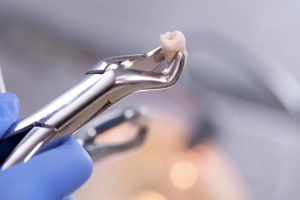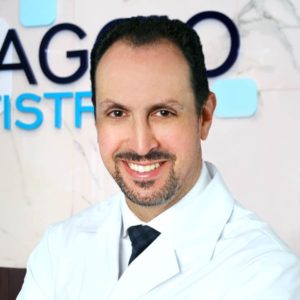 There are several reasons why a tooth extraction is needed for a patient. It is generally advised by a dentist when no other treatment is possible to treat or restore the tooth.
There are several reasons why a tooth extraction is needed for a patient. It is generally advised by a dentist when no other treatment is possible to treat or restore the tooth.
Before extraction, your dentist will need to know about your medical history and oral health to lower any risks with the procedure. Be sure to communicate and answer all questions about your health history honestly.
When is a tooth extraction done?
- Severe damage or decay due to infection: When tooth infection due to bacteria in the pulp is so severe that no antibiotics or a root canal procedure can correct it, the tooth is extracted to prevent further infection to the nearby areas. Dental decay is one of the main reasons for such an infection.
- For orthodontic treatment: Proper alignment of the teeth at certain times is not possible if the mouth is too crowded. Dentists may recommend tooth extraction to enable proper alignment of the rest of the teeth.
- Gum diseases: A severe infection in the tissues and bone structure of the nearby areas that loosen the tooth calls for an extraction.
- Impacted wisdom tooth: An infected wisdom tooth that has an impact on the surrounding teeth also needs to be removed.
- Other reasons: Supernumerary, supplemental, malformed or fractured teeth are reasons for extraction. Also, when undergoing certain medical procedures like radiotherapy, chemotherapy or an organ transplant may call for the extraction of some teeth as well.
Extraction procedure:
Teeth can be extracted through surgical or straightforward extraction procedures.
- In a simple extraction, the tooth is elevated using an elevator, and then, typically under local anesthesia, is pulled out using dental forceps.
- Surgical Extractions involve an incision and are performed under general anesthesia. It is done mainly when the tooth cannot be accessed easily.
After the extraction:
Post-extraction, antibiotics and painkillers are prescribed depending on the condition of the patient, and a gauge is placed in the area to be bitten firmly to reduce bleeding. Certain activities like smoking, rinsing, spitting, brushing and sipping with a straw should be avoided for the next few hours. Ice packs to the cheek reduce swelling. A light and soft diet are recommended.
Today, modern dental technology has made the tooth extraction process quite simple, fast and comfortable than ever before.
For more information contact us here.
About Dr. Joseph Salvaggio

Located in Brampton, Ontario Dr. Joseph Salvaggio has been practicing general, cosmetic, and implant dentistry for over 20 years. He enjoys interacting with his patients and helping to restore their oral health for better overall health as well. Meeting new patients, interacting and educating them is one of Dr. Salvaggio’s biggest joys. We encourage you to read our reviews or call us with any dental questions you have. We look forward to speaking with you and meeting you soon.
